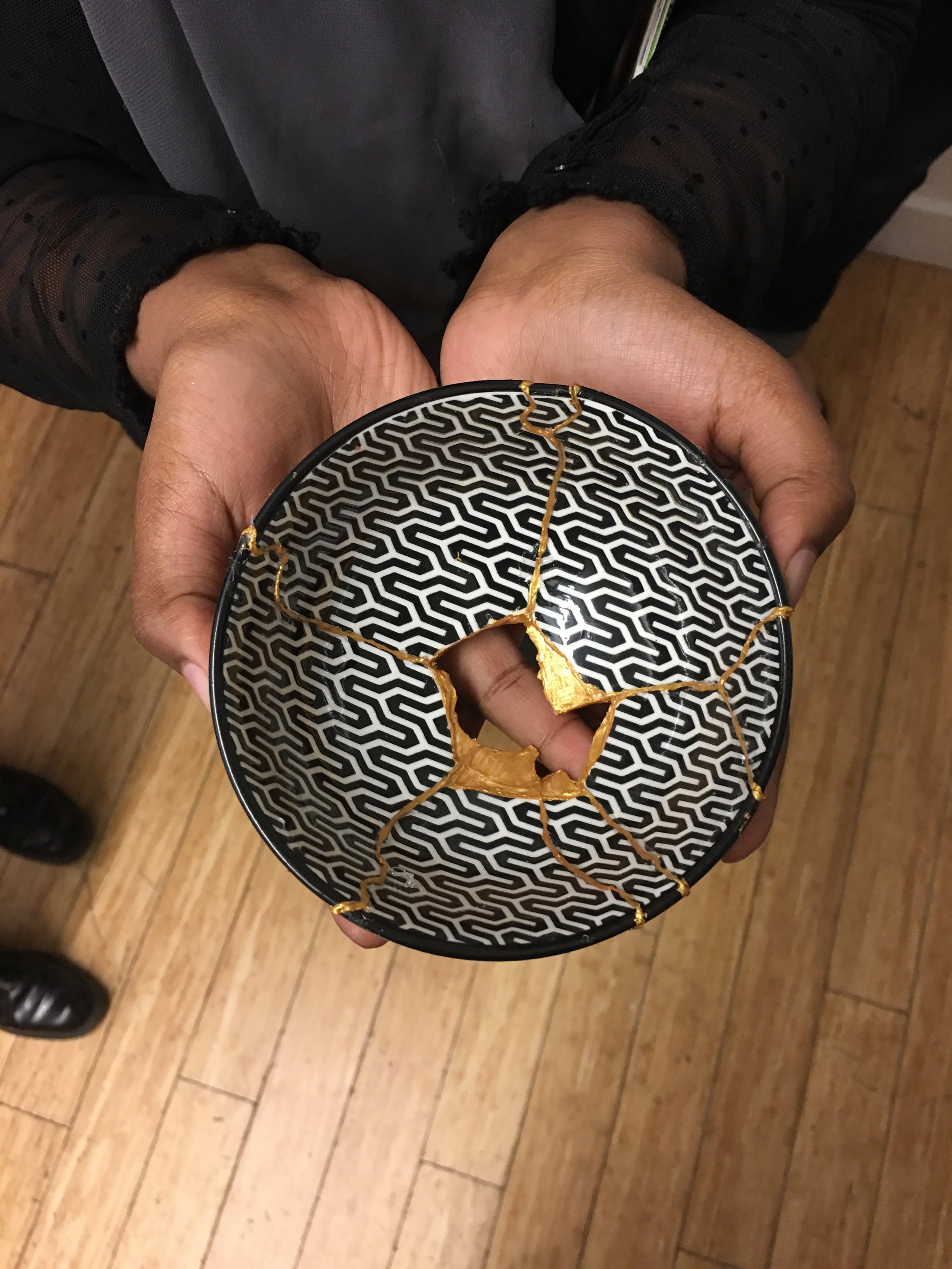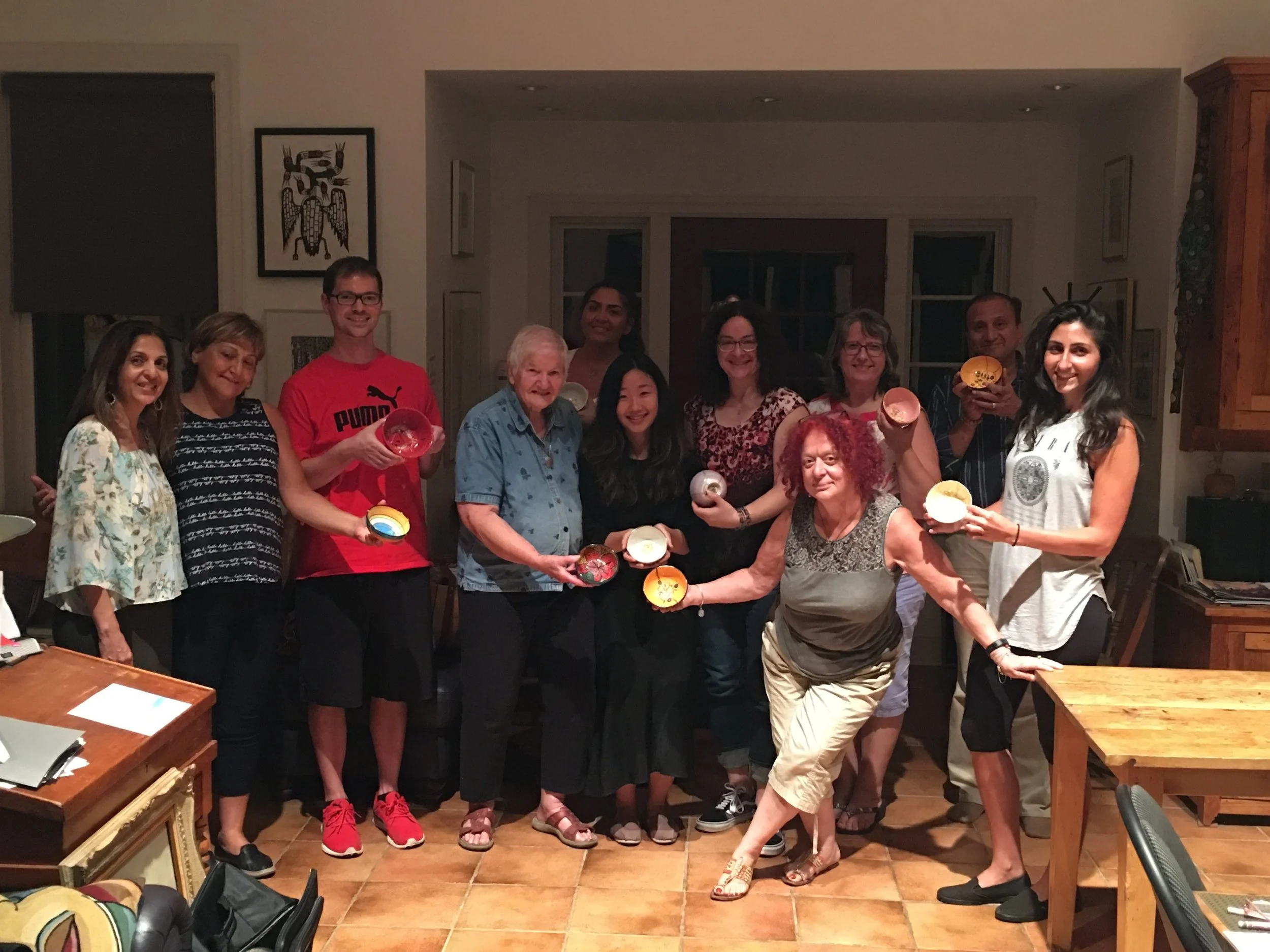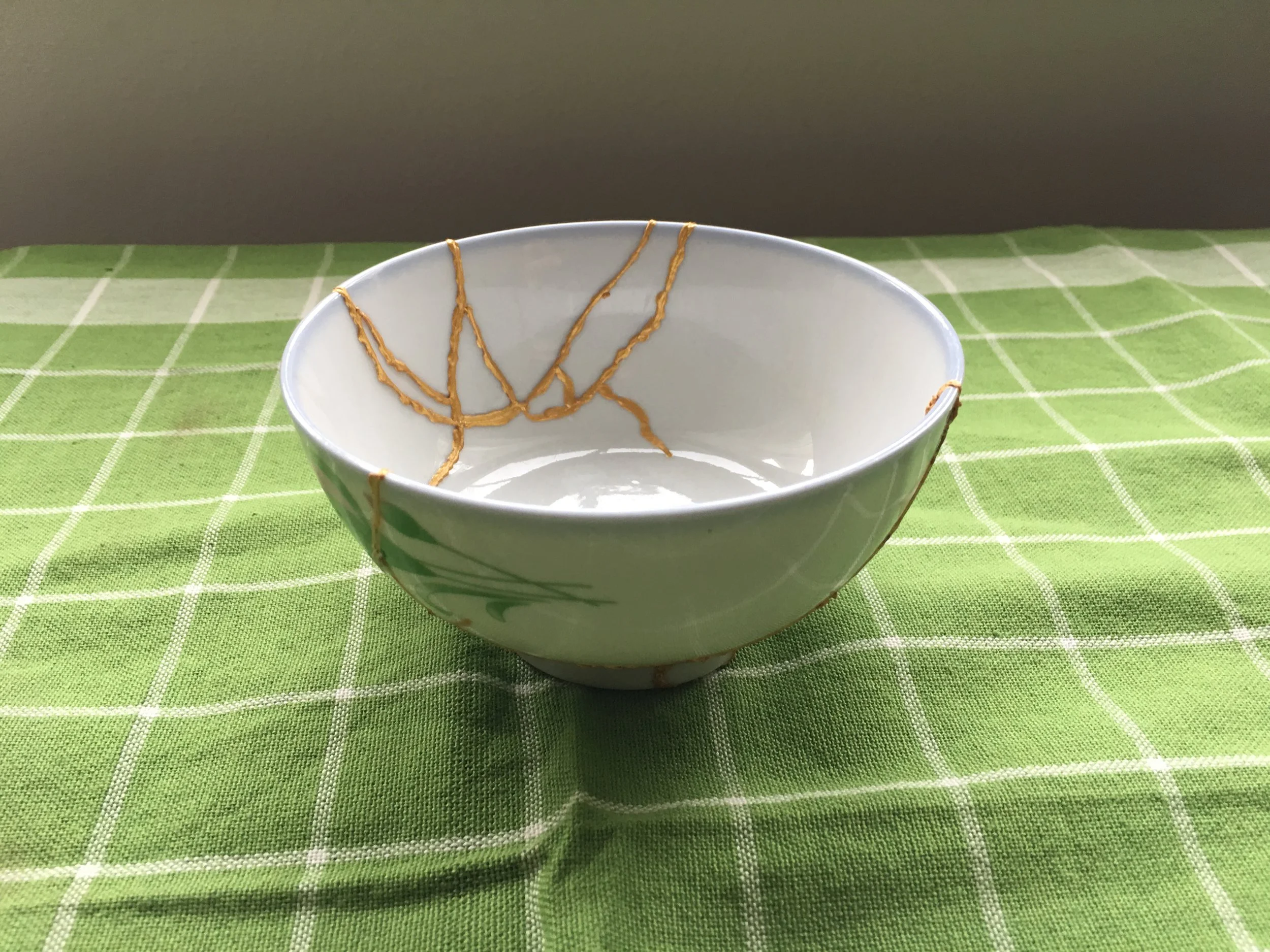Kintsugi Bowl
"Art of Precious Scars"
Through our journey of life many of us are touched by painful events such as loss, trauma and grief. Oftentimes our lives are left in disarray as we attempt to move on and cope by hiding or burying our painful feelings. This experiential workshop utilizes a meditative process through a tangible medium to help develop resiliency and healing in the face of loss and trauma. The Kintsugi Bowl is an ancient Japanese healing practice that serves to join back together that which was once broken, while showcasing the breaks and honouring the process.
Kin means golden, Tsugi means repair, thus Kintsugi means ‘Golden Repairing’.
This training is usually delivered as a two-part workshop, where we will journey through the breaking of a self-selected bowl, and then repairing it by gluing back together the pieces that remain. This self-reflective process symbolizes the healing that can transpire through a facilitated expression of our pain.
After repairing the bowl the cracks are illuminated by being painted with gold cern. In this way we serve to reclaim the beauty of a wounded spirit, while taking pride in the intentional joining of the breaks and missing parts of our lives.
















The History of the Kintsugi Bowl:
Kintsugi is said to have originated in the 15th century when a Japanese shogun, Ashikaga Yoshimasa, the eighth shogun of the Ashikaga shogunate, broke a favorite tea bowl and sent it back to China to be fixed. Unfortunately, at that time the objects were repaired with unsightly and impractical metal ligatures. It seemed that the cup was unrepairable but its owner decided to try to have some Japanese craftsmen repair it. They were surprised at the shogun’s steadfastness, so they decided to transform the cup into a jewel by filling its cracks with lacquered resin and powdered gold. And thus Kintsugi was born.
Since its conception, Kintsugi has been heavily influenced by prevalent philosophical ideas. Namely, the practice is related to the Japanese philosophy of wabi-sabi, which calls for seeing beauty in the flawed or imperfect. The repair method was also born from the Japanese feeling of mottainai, which expresses regret when something is wasted, as well as mushin, the acceptance of change.
Upcoming Workshops:
WORKSHOP #1:
When: February 4 and 11, 2022 3:00 pm to 5:30 pm
Where: YWCA Toronto
Cost: Private
To Register: Private
Space is limited.
PREPAYMENT IS REQUIRED


